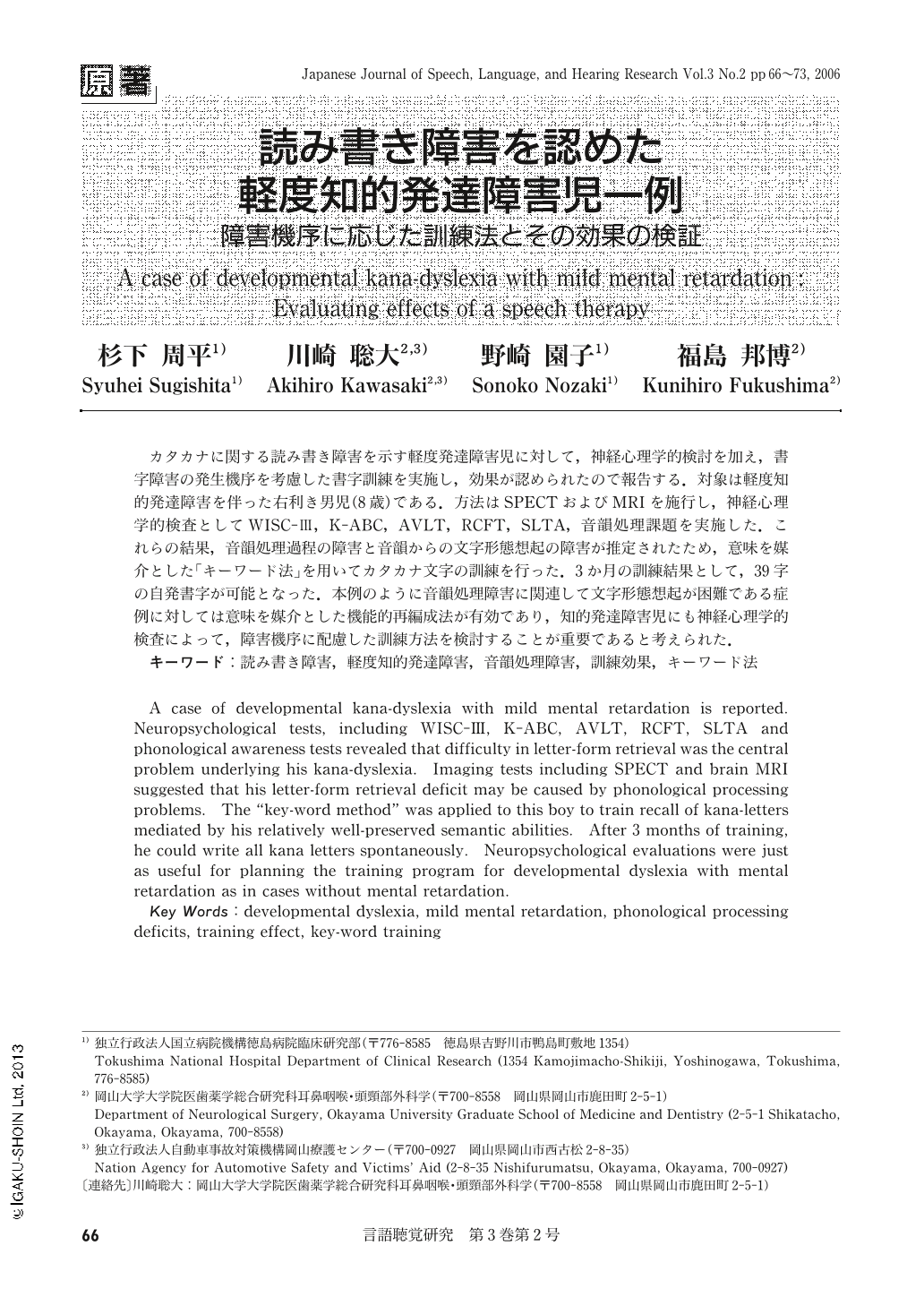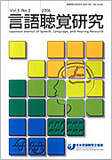Japanese
English
- 有料閲覧
- Abstract 文献概要
- 1ページ目 Look Inside
- 参考文献 Reference
- サイト内被引用 Cited by
カタカナに関する読み書き障害を示す軽度発達障害児に対して,神経心理学的検討を加え,書字障害の発生機序を考慮した書字訓練を実施し,効果が認められたので報告する.対象は軽度知的発達障害を伴った右利き男児(8歳)である.方法はSPECTおよびMRIを施行し,神経心理学的検査としてWISC-Ⅲ,K-ABC,AVLT,RCFT,SLTA,音韻処理課題を実施した.これらの結果,音韻処理過程の障害と音韻からの文字形態想起の障害が推定されたため,意味を媒介とした「キーワード法」を用いてカタカナ文字の訓練を行った.3か月の訓練結果として,39字の自発書字が可能となった.本例のように音韻処理障害に関連して文字形態想起が困難である症例に対しては意味を媒介とした機能的再編成法が有効であり,知的発達障害児にも神経心理学的検査によって,障害機序に配慮した訓練方法を検討することが重要であると考えられた.
A case of developmental kana-dyslexia with mild mental retardation is reported. Neuropsychological tests, including WISC-Ⅲ, K-ABC, AVLT, RCFT, SLTA and phonological awareness tests revealed that difficulty in letter-form retrieval was the central problem underlying his kana-dyslexia. Imaging tests including SPECT and brain MRI suggested that his letter-form retrieval deficit may be caused by phonological processing problems. The "key-word method" was applied to this boy to train recall of kana-letters mediated by his relatively well-preserved semantic abilities. After 3 months of training, he could write all kana letters spontaneously. Neuropsychological evaluations were just as useful for planning the training program for developmental dyslexia with mental retardation as in cases without mental retardation.

Copyright © 2006, Japanese Association of Speech-Language-Hearing Therapists. All rights reserved.


